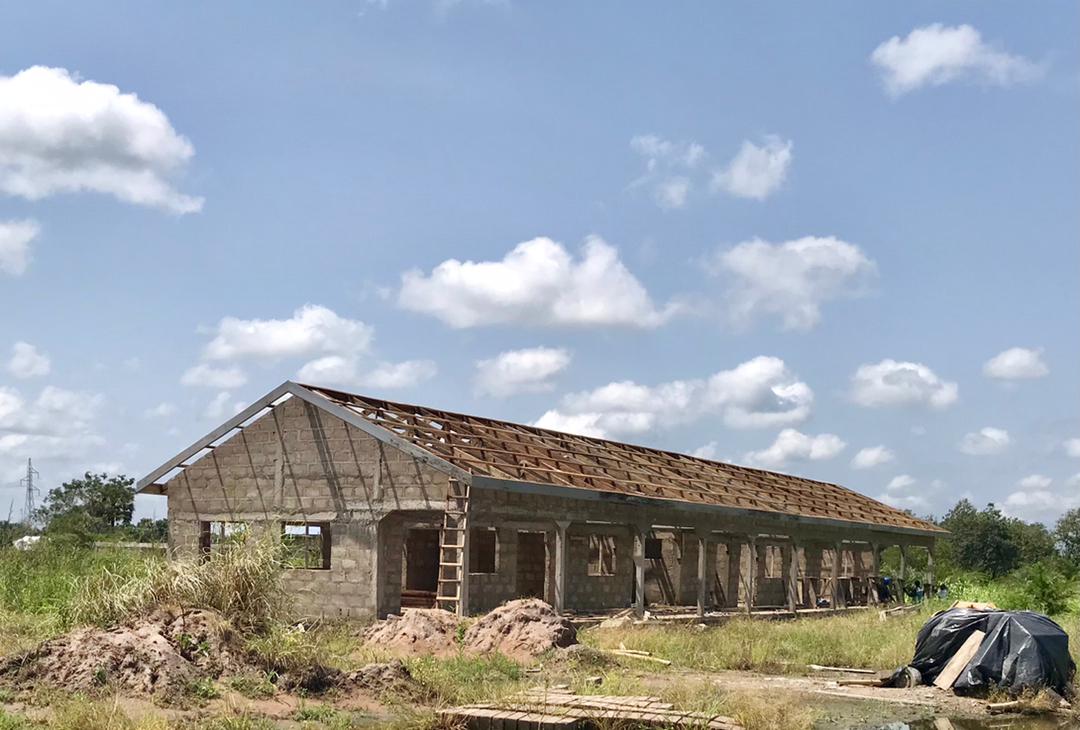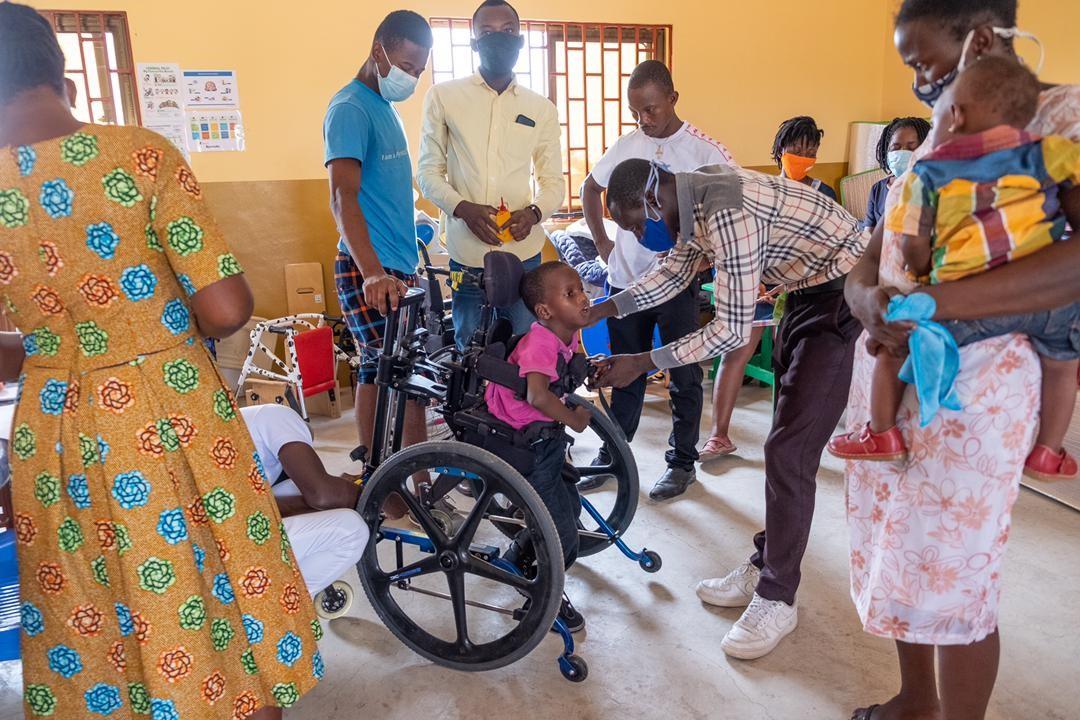Earlier this year the Rotary Club of Botany Randwick was pleased to provide a donation to the Rotary Club of Norwich in the UK, to further their project in support of the Kekeli Foundation in Ho, Ghana.
Rotary Club of Botany Randwick was pleased to provide a donation to the Rotary Club of Norwich in the UK, to further their project in support of the Kekeli Foundation in Ho, Ghana.
 Rotary Club of Botany Randwick was pleased to provide a donation to the Rotary Club of Norwich in the UK, to further their project in support of the Kekeli Foundation in Ho, Ghana.
Rotary Club of Botany Randwick was pleased to provide a donation to the Rotary Club of Norwich in the UK, to further their project in support of the Kekeli Foundation in Ho, Ghana. The two Clubs have a close connection through Rita Douglas, a member of the Norwich Club who has family in Sydney and regularly visits (at least pre-COVID) the Botany Randwick Club.
Good progress is being made as this photo of the new preschool/ kindergarten building shows. It's coming along well.
 The Kekeli Foundation finds educational opportunities for children with special needs. Their aim is reach more children and help them to achieve their dream of going to school, also. As they become educated, they will be able to contribute to their families and their communities.
The Kekeli Foundation finds educational opportunities for children with special needs. Their aim is reach more children and help them to achieve their dream of going to school, also. As they become educated, they will be able to contribute to their families and their communities.The Foundation, in collaboration with the Rotary Clubs of Ho, Norwich (UK), France, Novi Sad and Germany have decided to come together and adopt a Public Private Partnership approach in a possible policy diversion by providing an all Inclusive Model basic school in Ho. The project is to build Ghana's first all-inclusive school with all the necessary facilities to enable people with and without a disability to access everything they need with the help of specialist staff as well as general staff to teach at the school.
The purpose of this project is to get all children into a regular or normal school system and provide equal opportunities for everyone in teaching and learning situations. It intends to diversify the government’s policy by ensuring that the following practices do not occur:
• Segregated, self-contained programs or classes for students with learning or behavioural challenges, either in school or in community based learning opportunities.
• Alternative education programmes for students enrolled in basic schools
• Stigmatization of Children with disabilities in the normal school systems
• It is evident from available statistics (ARPR 2013/14) that, about 652 children with disabilities are enrolled in six (6) special schools and being attended to by twenty-eight (28) teachers. The attempt for all-inclusiveness is being piloted in three (3) normal schools with Special Units provided but with less qualified staff. No success stories have been told or documented yet from the three selected special units in the Volta region since 2006 till date. Children with special needs are not identified in the normal schools and there is no proper screening for such children.
• Segregated, self-contained programs or classes for students with learning or behavioural challenges, either in school or in community based learning opportunities.
• Alternative education programmes for students enrolled in basic schools
• Stigmatization of Children with disabilities in the normal school systems
• It is evident from available statistics (ARPR 2013/14) that, about 652 children with disabilities are enrolled in six (6) special schools and being attended to by twenty-eight (28) teachers. The attempt for all-inclusiveness is being piloted in three (3) normal schools with Special Units provided but with less qualified staff. No success stories have been told or documented yet from the three selected special units in the Volta region since 2006 till date. Children with special needs are not identified in the normal schools and there is no proper screening for such children.
